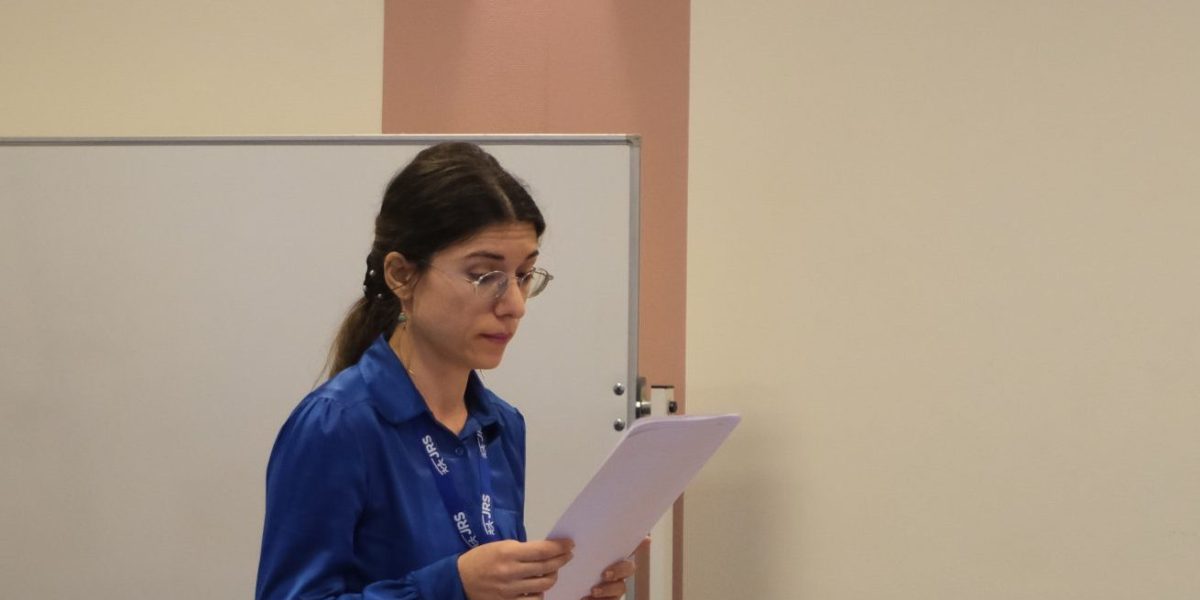EU Returns Regulation: Why an ‘Efficiency-First’ Approach Risks Undermining Human Rights
24 February 2026

On October 23, Mariza Koronioti, Policy and Advocacy Coordinator at JRS Europe, delivered a webinar on the proposed EU Returns Regulation, organized and chaired by the Asociación Pro Derechos Humanos de España (APDHE). The discussion unpacked the proposal’s main elements and focused on the far-reaching implications for human rights. Mariza Koronioti during her presentation addressed Spanish civil society organizations as well as International Federation for Human Rights (FIDH)-affiliated organizations working in Southern Europe and North Africa. It is part of a series of joint activities we are carrying out in collaboration with FIDH.
The event provided an opportunity to consider how the reform, as it stands now, would undermine the rights and human dignity of people on the move. It also underlined the pressing need for advocacy both at EU and national level as the European co-legislators are moving forward with this piece of legislation.
A legislative proposal focusing on efficiency rather than human dignity
Published in March 2025 to complement the Pact on Migration and Asylum, the European Commission’s proposal for a regulation creating a common European system for returns aims to speed up and increase the quantity of returns from the EU. However, the proposal adopts a punitive and security-oriented approach rather than a rights-based one.
Serious concerns about transparency are raised since it was developed without an impact assessment or meaningful consultation with experts and civil society. Some provisions can be considered positive, such as references to the respect of fundamental rights, support for return and reintegration and the creation of an independent monitoring mechanism of returns. Yet, these measures are outweighed by extensive changes that expand detention to more than two years and reduce safeguards, ultimately expected to cause more harm than good.
The possibility of removing Article 5, as seen in the first draft compromise of the Council, by which requires Member States to act in conformity with EU and international law and respect human rights, lies among the most concerning. The introduction of mandatory mutual recognition of return decisions poses additional challenges, given the disparities in the asylum and legal systems of Member States and thus it is a contested element by some Member States. The creation of “return hubs” outside of EU borders and the cooperation with non-recognized entities are other alarming aspects, since they could be used to coerce individuals into “voluntary” returns, thus rendering this a deterrent measure, and expose people to abuse in countries with abysmal human rights record. The proposal also restricts access to free legal aid, and limits effective remedies by removing the automatic suspensive effect of appeals. When combined, these actions weaken basic safeguards, exclude in practice any crucial scrutiny and foster a system in which violations are likely to go unpunished.
Human dignity should be the compass guiding all measures
As the legislative process continues in the Council and the European Parliament, with important discussions anticipated in the upcoming weeks, this is a critical moment for advocacy. JRS Europe calls for a moral and principled approach to EU return policies, one that prioritises fundamental rights, transparency and justice. As Mariza Koronioti said “We reiterate our call for a human-centered approach, where immigration (de facto) detention is not the default measure. Less coercive alternatives should always be considered first. We also repeat our strong recommendation to the Member States and Members of the European Parliament to reject in its entirety the concept of the so-called ‘return hubs’, as externalisation of migration and asylum policies may lead to severe human rights violations, according to, among others, the latest report of the Council of Europe Commissioner for Human Rights”.
JRS Europe will keep a close eye on the negotiations, interact with decision-makers, and promote rights-based alternatives to make sure that the EU’s asylum and migration policies place human dignity and safety at the centre. We will continue advocate for the rights of people we work with
